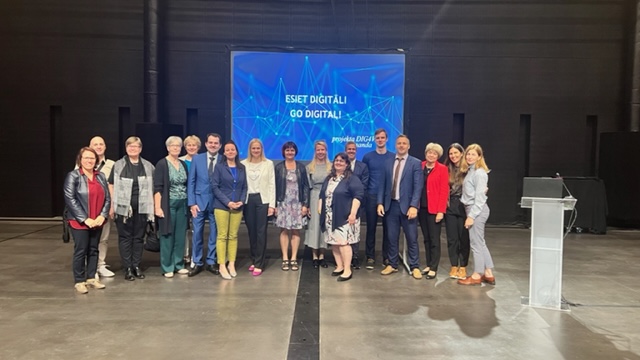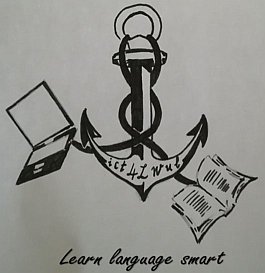Audiovisual methods and soft skills for language teaching
2019-1-RO01-KA204-063806
The project will have an immediate impact on teachers and adult education institutions. Teachers involved in linguistic education will be able to offer more innovative and efficient educational programs for their students and use digital methods much safely. They’ll be able to implement audiovisual methods as means of bringing innovation in the language classrooms, to motivate their students learning and bring a positive attitude. Moreover they will be able to offer content based learning and flipped classroom methods and to develop the soft skills which were considered the most important for them.
Adult Social Inclusion in a Digital Environment
2019-1-PL01-KA204-065689 01-09-2019-31-08-2021
The ASIDE project intends to support inclusive education and digital skills, improving the competences in digital social inclusion of adult social educators and adult social volunteers. Our project addresses social inclusion through the definition of a portfolio of basic digital competences that are necessary for developing Information and Communication Technology - based social inclusion initiatives / services
More precisely, our project aims to:
- foster social inclusion improving the competences of social educators and social volunteers engaged in designing/implementing social inclusion initiative/projects (Priority: Social inclusion)
- enhance the support, participation, and learning activities of social educators and social volunteers engaged in inclusive education and digital social practices (Priority: Extending and developing educators' competences)
- improve social inclusions through digital innovation practices, innovative ICT-based methods and pedagogies, as well as online participatory models, where appropriate (Priority: Open education and innovative practices in a digital era)
Strategic Partnerships for adult education
Cooperation for innovation and the exchange of good practices
2019-1-PL01-KA204-065689 01-09-2019 - 31-08-2021
Project duration: 2019 - 2021
Project Coordinator: Fundacja Instytut Badan i Innowacji w Edukacji, Poland
Project Partners: ITC International, Czech Republic
Saricam Halk Egitimi Merkezi, Turkey
Fundacion Universitat Jaume I - Empresa, Spain
As a part of ASIDE Project funding, ITC-Prague has been delivering face-to-face and online courses to adults in the area of Financial Literacy, Soft Skills, ICT skills, Digitalization skills, Innovative Teaching and Migration in the Czech Republic, the UK, Finland and Sweden.

ICT based methods for teaching Less Widely Used Languages

ITC-International is a proud member of the G6 ICT4LWUL that participates on an international project co-funded by the EU (Erasmus+ field: Strategic Partnerships for vocational education and training).
ICT based methods in teaching (The focus is on 3 different types of ICT-based methods: e-learning, web platforms & social media and using mobile and smartphone devices in teaching.) can bring great value and improve the quality of teaching and learning in general.
As the target in the EU is still on widely used languages, there is a gap between those and teaching of the target LWUL: Romanian, Hungarian, Estonian, Polish, Czech and Italian.
This project aims to change it!
For more information please look at the project FB page ICT4LWUL
Duration: 01.10.2017 - 30.09.2019
Coordinator: Bridge Language Study House (Romania)
Partners: Tallinn Language Centre (Estonia), Debrecen Summer School (Hungary), Europass Italian Language School (Italy), Studium Modern Languages Centre (Poland), ITC International (CZ)
the Handbook download: https://www.blsh.ro/sdm_downloads/download-the-ict4lwul-handbook/
https://ict4lwult.wordpress.com, https://www.facebook.com/ICT4LWUL/
At EU LEVEL, as according to the “Rethinking Education” initiative, strong language and communication skills are important for both individuals and businesses and improving the language skills of EU citizens is a high priority. The experts involved in the “Report from the thematic working group: Languages For Jobs” encourage the development and dissemination of new language teaching methods. Including ICT based methods in teaching can bring a great value and improve the quality of teaching and learning in general. However, there are gaps when it comes to teaching foreign languages. The previously mentioned report underlines, that a wider offer of languages taught and learned in the educational and training systems should be promoted. The “Language competences for employability, mobility and growth” also shows, that Member States already invest considerably in the teaching of foreign languages, however, there is no enough investment in the less widely used languages (LWUL). As the target in the EU is still on widely used languages, there is a gap between those and teaching of the target LWUL: Romanian, Hungarian, Estonian, Polish, Czech and Italian.
The needs discovered at EU level were confirmed by national databases and reports and by the internal needs assessment, which underlined the gaps and needs at NATIONAL & ORGANISATIONAL level: – the existing resources, that teachers can use in order to prepare and provide linguistic programs is much more limited for LWUL then for widely used ones. For example the internet is full of ITC-based methods, exercises, tests, online games and other instruments for teaching widely used languages such as English or German, however, all the 6 partner institutions find difficulties when searching resources for teaching their national LWUL;
– there is a lack of specialized books for LWUL teaching, or the ones available on the market are outdated. This situation was highlighted especially by the Romanian, Italian, Estonian, Polish and Czech partners, while the Hungarian partners developed their own syllabus;
– LWUL teachers have limited possibilities to attend lifelong learning programs in order to improve their teaching on the target language, as on the market there is limited access to such formal or non-formal programs, courses or trainings. This is why all the partner institutions developed themselves their own curricula (& syllabus in the case of Hungarians) and try to adapt it all the time to the new needs of the market.
The “Rethinking Education” shows, that “a primary influence on learners’ performance is the quality of teaching”. The internal assessment also underlined, that partners consider teacher trainings a strong opportunity for organisational development. So in order to improve the efficiency, quality and innovation of LWUL teaching, we need to develop the teacher’s know-how and offer them adaptable resources they can use in classes. These are the reasons why the MAIN TARGET GROUP of the project consists of language education providers, namely Romanian, Hungarian, Estonian, Polish, Czech and Italian as foreign language teachers.
The partnership wishes to pursue the following OBJECTIVES in order to meet needs:
Increasing the knowledge about 3 different types of ICT based methods within the partnership during the lifetime of the project;
Empower the partner language schools and teachers to be able to adapt and integrate the transferred ICT based methods for teaching the target LWUL as a foreign language;
Improve the knowledge of min. 120 language teachers from outside the partnership by the creation and dissemination of a Handbook containing at least 90 LWUL teaching exercises;
ITC is:
- Accredited by the Czech ministry of education
- Member of the Czech committee for science management
- Certified by the International Education Society, London




